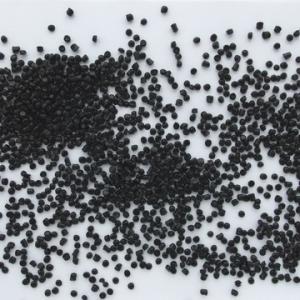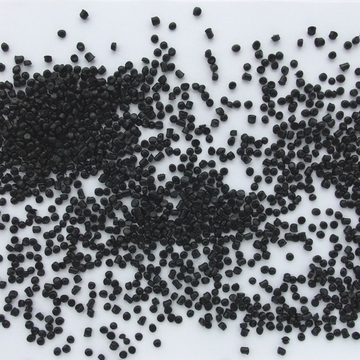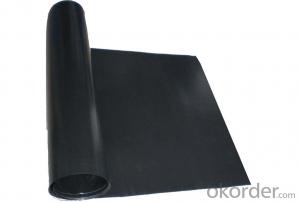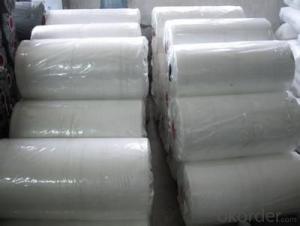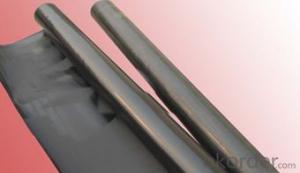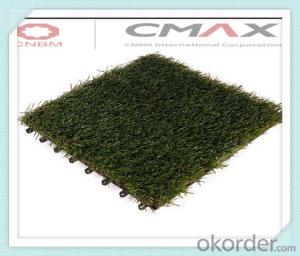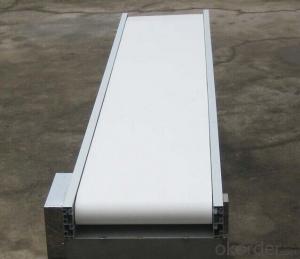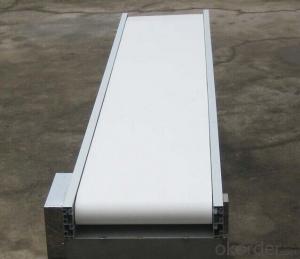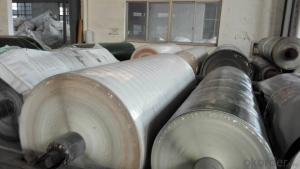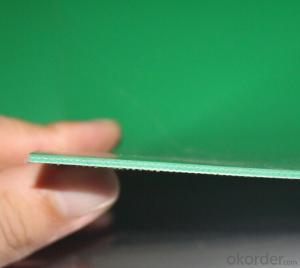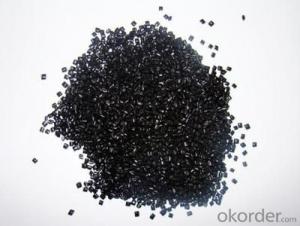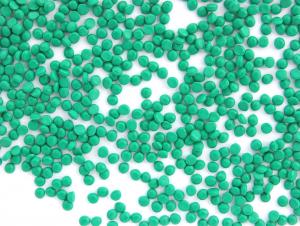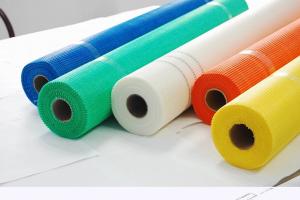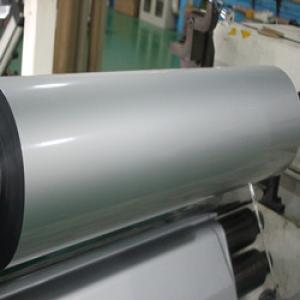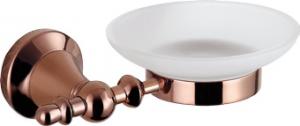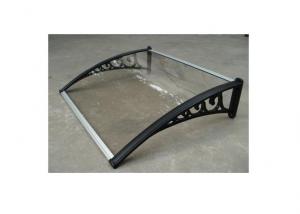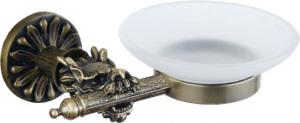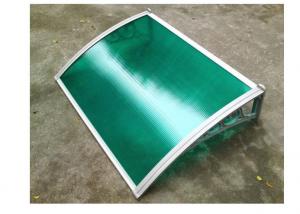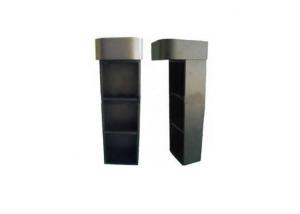PE Compound
- Loading Port:
- Shanghai
- Payment Terms:
- TT OR LC
- Min Order Qty:
- -
- Supply Capability:
- 3000 Tons kg/month
OKorder Service Pledge
OKorder Financial Service
You Might Also Like
PE Compound
I. Type andapplication
Type | Product | Application |
NDH | Black LDPE jacket compound for resistance to environmental stress crack | Jacket of telephone cable, RF cable and optical cable |
LDH | Black LLDPE jacket compound | |
MH | Black MDPE jacket compound | |
GH | Black HDPE jacket compound | Jacket of optical cable. High strength and abrasion resistant jacket |
NLDJ | Black weatherability LLDPE insulating compound | |
NGJ | Black weatherability HDPE insulating compound | Insulation of aerial cable |
ZPE | Flame retardant PE compound | Flame-retardant insulating or jacket of 70~90℃wires and cables |
RDH | Flexible PE jacket compound | Flexible PE jacket of 70℃wires and cables |
II. PE compound, based on PE resin, isproduced and pelletized with the double corrugated screw, in which variousadditives are added. The compound is according to GB 15065-94 and IEC 60502. The compound has outstandingperformances of processing, physical, mechanical and electrical properties.
III. Processing: It is recommended thatcompound should be processed with extruder having a minimum L/D ratio of 25.Compound (not including ZPE) should be thoroughly dried before use, and the maximum drying temperature should notexceed 100℃.
Thefollowing temperature(℃) profile of extruder is recommended:
Type | Zone 1 | Zone 2 | Zone 3 | Zone 4 | head | die |
NDH | 180 | 190 | 200 | 210 | 220 | 230 |
LDH | 170 | 180 | 190 | 200 | 210 | 220 |
MH | 180 | 210 | 220 | 230 | 245 | 240 |
GH、NGJ | 190 | 215 | 230 | 245 | 245 | 240 |
NLDJ | 160 | 180 | 195 | 200 | 200 | 210 |
ZPE | 140 | 150 | 160 | 170 | 170 | 165 |
RDH | 140 | 160 | 175 | 180 | 190 | 190 |
Note: The processing parameters are forreference only, optimal conditions may vary according to the equipment used.The cooling water tank should be used sectionally cooling with warm-waterechelon in order to reduce internal stress.
ⅳ. Properties
Unit | NDH | GH | LDH | MH | RDH | ||||||
Standard | Typical | Standard | Typical | Standard | Typical | Standard | Typical | Standard | Typical | ||
Volume Resistivity at 20℃ | ≥Ω﹒m | 1.0×1014 | 1.1×1015 | 1.0×1014 | 8.0×1014 | 1.0×1014 | 8×1014 | 1.0×1014 | 3.6×1014 | 1.0×1013 | 3.0×1013 |
Dielectric Strength | ≥MV/m | 25 | 37 | 25 | 35 | 25 | 32 | 25 | 35 | 25 | 28 |
Dielectric Constant | ≤ | 2.80 | 2.36 | 2.75 | 2.40 | 2.80 | 2.35 | 2.75 | 2.4 | - | - |
Dielectric Loss, Angular Tangent | ≤ | - | - | 0.005 | 0.0006 | - | - | 0.005 | 0.001 | - | - |
Melt Flowing Index | ≤g/10min | 2.0 | 0.9 | 0.5 | 0.3 | 2.0 | 1.1 | 1.0 | 0.5 | 2.0 | 1.9 |
Density | g/cm3 | 0.920- 0.949 | 0.936 | 0.950- 0.978 | 0.953 | 0.920- 0.945 | 0.938 | 0.940- 0.955 | 0.945 | - | - |
Tensile Strength | ≥MPa | 13.0 | 19.0 | 20.0 | 23.0 | ≥14.0 | 18.0 | ≥17.0 | 23.0 | 13.0 | 17.0 |
Yield Strength | ≥MPa | - | - | 16.0 | 20.0 | - | - | - | - | - | - |
Elongation at Break | ≥% | 500 | 790 | 650 | 850 | 600 | 700 | 600 | 800 | 500 | 590 |
Low Temp. Elongation at Break | ≥% | - | - | 175 | 210 | - | - | - | - | - | - |
Impact Brittleness in low temp. | ≤℃ | -76 | Pass | -76 | Pass | -76 | Pass | -76 | Pass | -76 | Pass |
Dispersity of Carbon Black | ≥ Scatter | 6 | 7 | 6 | 7 | 6 | 7 | 6 | 7 | 6 | 7 |
Carbon Black Content | % | 2.60±0.25 | 2.6 | 2.60±0.25 | 2.6 | 2.60±0.25 | 2.6 | 2.60±0.25 | 2.6 | 2.60±0.25 | 2.6 |
Resistance to Environmental Stress Crack F0 | ≥h | 96 | Pass | 500 | Pass | 500 | Pass | 200 | Pass | 96 | Pass |
200℃ Oxidative Induced Time | ≥min | 30 | Pass | - | - | 30 | Pass | 30 | Pass | 30 | Pass |
Note: 1、The sample made method is thermoplastic pressing which is accord toGB9352 standard.
Item | Unit | NLDJ | NGJ | ZPE | |||
Standard | Typical | Standard | Typical | Standard | Typical | ||
Volume Resistivity at 20℃ | Ω﹒m | ≥1.0×1014 | 8×1014 | ≥1.0×1014 | 8×1014 | ≥1.0×1011 | 5.0×1012 |
Dielectric Strength | MV/m | ≥25 | 35 | ≥35 | 40 | ≥20 | 25 |
Dielectric Constant | ≤ | - | - | ≤2.45 | 2.35 | - | - |
Dielectric Loss, Angular Tangent | ≤ | - | - | ≤0.001 | 0.0008 | - | - |
Melt Flowing Index | g/10min | ≤1.0 | 0.6 | ≤0.4 | 0.2 | 2.0 | 1.36 |
Density | g/cm3 | 0.920- 0.945 | 0.938 | 0.955- 0.978 | 0.958 | - |
|
Tensile Strength | MPa | ≥14.0 | 20.0 | ≥20.0 | 28.0 | ≥10.0 | 15.0 |
Yield Strength | MPa | - | - | ≥16.0 | 20.0 | - | - |
Elongation at Break | % | ≥600 | 750 | ≥650 | 830 | ≥250 | 650 |
LowTemp.Elongation at Break | % | - | - | ≥175 | 240 | - | - |
Impact Brittleness in low temp. | ℃ | ≤-76 | Pass | ≤-76 | Pass | -40 | Pass |
Dispersity of Carbon Black | Scatter | ≥6 | 7 | ≥6 | 7 | - | - |
Resistance to Heat Stress Crack | h | - | - | ≥96 | Pass | - | - |
Resistance to Environmental Stress Crack F0 | h | ≥500 | Pass | ≥500 | Pass | ≥96 | Pass |
Vicat Softening Temp. | ℃ | - | - | ≥110 | 127 | - | - |
Air oven aging |
| 100℃×10d | 100℃×10d | 100℃7d | |||
Tensile Strength after aging | MPa | ≥13.0 | 19.0 | ≥20.0 | 26.0 | ≥10.0 | 14.6 |
Elongation atBreak after aging | % | ≥500 | 700 | ≥650 | 760 | ≥250 | 670 |
(0-1008)h Artificialweatheringaging time |
|
|
|
|
|
|
|
Variation on Tensile Strength | % | ±25 | 14.5 | ±25 | 15.5 | - | - |
VariationonElongationat Break | % | ±25 | 17.2 | ±25 | 18.3 | - | - |
(504-1008)h Aging time |
|
|
|
|
|
|
|
Variation on Tensile Strength | % | ±15 | 12.5 | ±15 | 10.2 | - | - |
VariationonElongation atBreak | % | ±15 | 10.5 | ±15 | 9.5 | - | - |
Oxygen Index |
| - | - | - | - | ≥26 | 26.4 |
- Q: The concept, classification and distinction of modified plastics and plastic raw materials.
- Classification: modified plastic products are mainly a variety of flame retardant resins, toughening resin, plastic alloy, functional masterbatch etc..
- Q: What is the ideal mesh size for an olive net?
- The ideal mesh size for an olive net is typically between 10mm to 20mm. This size allows for efficient harvesting by capturing the olives while letting debris and smaller branches fall through the net.
- Q: Can olive nets be used on olive trees grown in greenhouses?
- Yes, olive nets can be used on olive trees grown in greenhouses. Olive nets are commonly used to protect the fruits from birds and pests. In a greenhouse setting, these nets can provide additional protection and help maintain the quality of the olives.
- Q: How do you prevent olive nets from causing damage to wildlife or birds?
- One way to prevent olive nets from causing damage to wildlife or birds is by using specially designed nets with smaller mesh sizes that can prevent animals or birds from getting entangled or trapped. Additionally, regularly monitoring the nets and removing any unintended catch can also minimize harm to wildlife. Furthermore, employing scare devices such as visual deterrents or noise makers near the nets can help deter birds from getting close and potentially getting trapped.
- Q: How do you prevent olive nets from causing injuries to workers during harvesting?
- To prevent olive nets from causing injuries to workers during harvesting, several measures can be taken. Firstly, proper training and education should be provided to workers on the safe use of nets and the potential risks involved. This includes demonstrating the correct techniques for handling and setting up the nets. Secondly, it is crucial to ensure that the nets used are of high quality and in good condition. Regular inspections should be conducted to identify any damages or weak spots that may pose a risk. Prompt repairs or replacements should be made as needed. Additionally, it is important to establish clear guidelines and protocols for the use of nets. This includes defining safe working distances from the nets and implementing strict procedures for workers to follow to avoid entanglement or falls. Proper supervision and monitoring during the harvesting process can help identify any unsafe practices or potential hazards. Regular communication and feedback channels should be established to encourage workers to report any concerns or incidents related to the use of olive nets. Overall, a combination of training, proper equipment maintenance, clear guidelines, and effective supervision can significantly reduce the risk of injuries caused by olive nets during harvesting.
- Q: How about making a bottle of yogurt with plastic bottles?
- Hello. Glass is best, plastic bottles are easy to produce toxins,A bottle that can be recycled is ok.
- Q: Can olive nets be used in both commercial and home olive orchards?
- Yes, olive nets can be used in both commercial and home olive orchards. Olive nets are commonly used to protect the olive trees from birds and to collect the falling olives during harvesting. They are versatile and suitable for orchards of all sizes, making them a practical choice for both commercial and home growers.
- Q: Do olive nets prevent olives from getting sunburned?
- Yes, olive nets are effective in preventing olives from getting sunburned.
- Q: How do olive nets affect the air circulation around olive trees?
- Olive nets can significantly impact the air circulation around olive trees. These nets are designed to cover the entire canopy of the tree, thus restricting the movement of air through the branches and leaves. As a result, the airflow around the tree is greatly reduced, leading to decreased ventilation and increased humidity levels within the canopy. This altered air circulation can potentially create a more favorable environment for the growth of certain fungal diseases and pests, which thrive in humid conditions. Additionally, reduced air circulation may also affect pollination by hindering the movement of pollen within and between olive trees. Therefore, while olive nets offer benefits such as protecting the fruit from birds and other animals, it is important to consider their potential impact on air circulation and take appropriate measures to ensure adequate ventilation for the health of the olive trees.
- Q: Can olive nets be used in regions with high salinity levels in the soil?
- Yes, olive nets can be used in regions with high salinity levels in the soil. Olive trees are known to be tolerant of salt in the soil, and the nets are primarily used to protect the olives from birds and other pests. However, it is important to note that excessive salinity can still affect the overall health and productivity of the olive trees, so proper soil management and irrigation practices should be implemented to mitigate the negative effects of high salinity levels.
Send your message to us
PE Compound
- Loading Port:
- Shanghai
- Payment Terms:
- TT OR LC
- Min Order Qty:
- -
- Supply Capability:
- 3000 Tons kg/month
OKorder Service Pledge
OKorder Financial Service
Similar products
Hot products
Hot Searches
Related keywords
